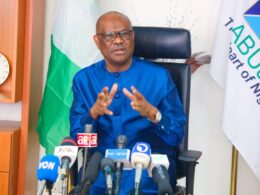A recent report by the World Bank highlights a troubling reality in Nigeria, revealing that stagnant labor incomes have thrust an estimated 14 million additional Nigerians into poverty in 2024.
The World Bank’s report, Macro Poverty Outlook: Country-by-Country Analysis and Projections for the Developing World, indicates that approximately 47% of Nigerians currently survive on less than $2.15 a day. Economic growth has failed to match rapid population increases and escalating living costs. Stagnant labor incomes, which have not kept pace with inflation, are a direct contributor to the surge in poverty.
Key findings from the report reveal an estimated 14 million additional Nigerians have fallen into poverty, raising the total to around 135 million. If economic conditions persist without significant reforms, the World Bank projects that poverty rates could climb to 52% by 2026.
About 34.3% of Nigerian workers aged 15 and older are classified as “working poor,” earning below the national poverty line despite being employed. Rising inflation has severely eroded purchasing power, making it increasingly difficult for families to meet basic needs. Contributing factors include global economic pressures and local governance challenges.
Nigeria’s economy grapples with numerous obstacles: inflation has surged due to global commodity price increases and local supply chain disruptions. The Central Bank of Nigeria (CBN) has raised interest rates to combat inflation, but many households still struggle with diminished purchasing power.
Labor productivity in Nigeria remains alarmingly low, at around $7 per hour, significantly lower than other African nations. Although some sectors are growing, overall economic expansion has not kept pace with Nigeria’s rapidly increasing population, trapping many in low-paying jobs.
In response to rising poverty levels, the Nigerian government has launched cash assistance initiatives targeting 15 million households, providing N75,000 (approximately $190) in three installments. While this program aims to offer temporary relief, critics argue that it fails to address the fundamental structural issues. The government has expanded social investment programs intended to support vulnerable populations through direct cash transfers and assistance, but concerns about effectiveness and reach persist.
Despite these initiatives, significant challenges remain. The World Bank report highlights deep-seated structural constraints that hinder economic growth, including poor governance, inadequate infrastructure, and lack of investment in key sectors like education and healthcare.
Experts emphasize the need for comprehensive economic reforms that extend beyond short-term relief measures. Improving labor market conditions, enhancing productivity through education and training programs, and fostering a conducive business environment are essential.
Tackling inflation remains a priority for policymakers. While the CBN’s monetary policy adjustments are necessary, broader fiscal policies are required to stabilize prices and promote sustainable economic growth.










Join our Channel...